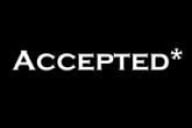You have /5 articles left.
Sign up for a free account or log in.
Welcome back. I'm without the Internet at my house at the moment, so I apologize if these posts will be a little erratic over the next week (and hopefully not more) as I ease back into my semester routine.
This Wednesday is the first #FYCchat of the 2012-2013 academic year. You can check out what we're all about and some of our archived chats here. FYC stands for First-Year Composition, and every Wednesday evening at 9 PM Eastern, a bunch of us get together and talk about teaching Freshman Writing. This week, we'll be talking about motivation and motivating ourselves at the beginning of the year. Many of us are off the tenure-track, so motivation does become an issue, with job insecurity, increasingly rigid curriculum, etc, etc, etc.
It's a great bunch of educators who are passionate and knowledgeable about teaching FYC, so please come and join us and share. An hour will fly by and I will always feel a) smarter than when I started and b) refreshed and motivated to get back into my classroom.
------------
May daughter is in her second full week of Kindergarten. She is loving just about every minute of it, including getting on the bus before 7 AM (she is insisting). But this weekend, something interesting happened. And by interesting, I mean, it made me want to scream.
She said: "He don't have no water."
I corrected her, "No, honey, it should be, he doesn't have any water," but the rest of the weekend, I kept hearing her use "don't" instead of "doesn't." My reaction kept getting increasingly out of proportion (which I know is part of the problem). We've already forbidden the word "ain't" in our house until they are old enough to really understand situational context (while they do understand that swear words are grown-up words). Actually, we (my husband and I) get more upset when the kids use poor grammar than we do when they (infrequently) swear (and always in the proper context and in a grammatically correct way, mind you).
I worry about my daughter picking up the poor grammar habits that my students have. I worry that she won't be able to code switch well enough to be able to "pass" (something I've written about in the past). I was raised to use proper grammar, not to mention a second language, because (as my mother always pointed out) it would be important for my future employability. And recently, the debate about using good grammar was brought out again (hey the NYT has even wadded into the debate). I understand, however, that often using good grammar will mark her as separate from the peers that she will be going to school with. I also don't want her (or my son) to look down on or dismiss people who speak using the vernacular of the area.
But.
I have the same lesson every year from my Freshman writers: you do not wear sweatpants to a job interview. You do not speak to a pastor the same way you would speak to your best friend. And you have to adapt your language, tone, and form according to the audience you are addressing. People judge you by how you present yourself, for better or for worse. If you know this, then you need to work to make sure you present the best version of yourself in a job letter and an interview. It's knowing when to use "ain't" and when to just avoid contractions all together.
Like around your mother who happens to be an English professor.
--------------------
Another friend of mine shared an article about the eventual demise of the "professional writer." I've already stated that I got out of "professional writing" for the reasons he states in the aforementioned article (and, yes, I got into the much more stable and lucrative field of higher education - stop laughing at my poor life choices). But mostly, however, I don't lament the system that privileged a few and left so many people voiceless and disenfranchised. No one is any profession anymore can be only "one thing." Writing is a valuable skill, but it's only one. We will always need good writers (of which there are still few), but we need to have more than one skill set and be willing to do other things in order to be writers.
I like this response that dismissed the arguments as sour grapes against the disruption that technology has brought. In my response to my friend, I refused to call the system "broken" as I don't think it can be fixed. Nor do I want it to be fixed. The bar to entry has been lowered, which has caused a flood in the market. It's too easy to say that the cream will rise to the top (hey, where have I heard that argument before?) but I do think that giving more people an opportunity to write and connect isn't a bad thing. The old model isn't quite broken enough in order to let a new way of publishing, or perhaps more appropriately, distribution and compensation, to take its place.
Death to the Professional Writer. Long live the Writer.





